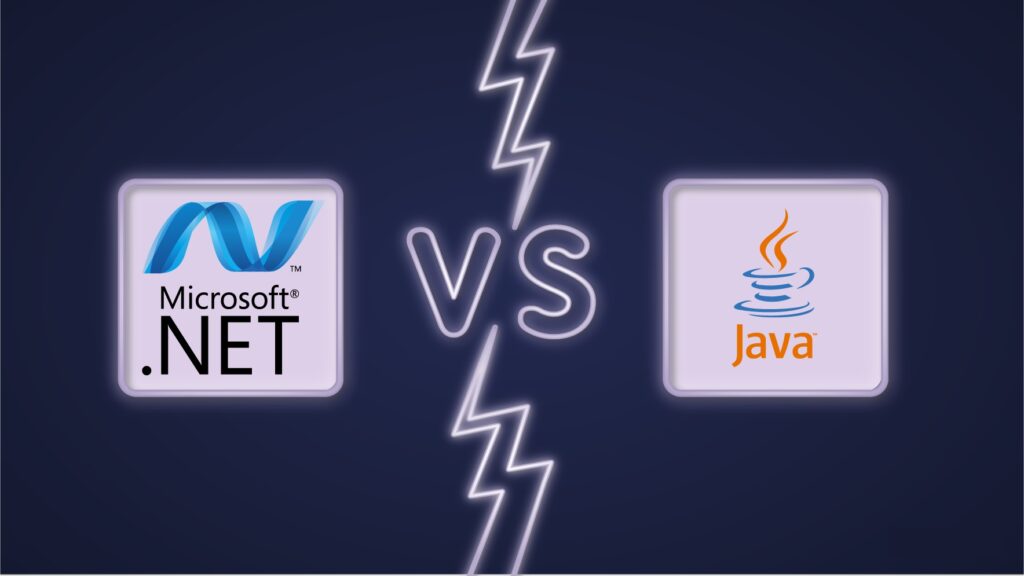When it comes to developing web applications and websites, most companies choose both Java and ASP.Net development and Java web development are widely used programming languages that allow you to create user-friendly desktop programmes and robust web solutions. However, choosing between these popular languages might be difficult. Even developers can be perplexed when choosing the best development framework.
What Exactly Is Java?
It’s a quick, secure, and sophisticated programming language that can handle various development tasks. It’s a universal language that can build nearly anything, from data centres to game consoles and supercomputers.
What Is ASP.NET?
It’s a cross-platform, open-source platform that can handle the development of a variety of apps.
For creating games, desktop, mobile, web, and IoT apps, ASP.NET provides a variety of editors, tools, and languages.
Java vs ASP.NET: What’s the Difference?
Let’s have a look at the primary differences between Java and ASP.NET in terms of things like:
1. Identify Your Audience
ASP.NET
While.NET is primarily targeted toward Windows users; there are various open-source implementations available.
Java
Java uses the JVM (Java Virtual Machine), which is based on the premise that code can execute on any device and under any operating system.
2. Working Conditions
ASP.NET
ASP.NET apps can only run on a Windows environment.
Java
Java online apps and Java Enterprise Edition, written in Java, can run on any platform.
3. Supported Languages
Main programming languages such as PHP, Ruby, and Python are supported by both.NET and Java.
ASP.NET is the default language.
It works with various languages, including C#, VB.NET, C++, and F#. It allows for more flexibility in developing corporate apps, yet developers must have a diverse set of coding skills.
Java
The Java 2 Platform Enterprise Edition (J2EE) makes Java the default language for working with the Java 2 Platform.
Visual Studio is the default IDE for ASP.NET and.NET applications.
Java has four integrated development environments (IDEs): IntelliJ Idea, Eclipse, Oracle JDeveloper, and Oracle NetBeans.
4. Dependency on the platform
ASP.NET
It is platform-dependent, with code that can only be run on Windows.
Java
We all know that Java is a powerful platform-agnostic programming language that allows code to execute on any platform utilising the JVM.
5. Supports
ASP.NET
It backs the following ideas:
• A set of boundaries arrays
• Examines variables that haven’t been initialised.
• type checking, bounds
• Collects trash
As a result, it provides unrivalled durability, software strength, and programmer productivity.
Java
Java arrays can carry out the role of identifying checked and unchecked expectations.
Differences between ASP.NET and Java on a Basic Level
Both frameworks have variances in operating systems and support for other programming languages. You can learn more about the differences when you engage specialist developers for either of these technologies.
Various Operating Systems
Thanks to its compilers and JRE(Java Runtime Environment), Java can operate on any system. The notion of “write once, run everywhere” is followed in this framework. The Java Virtual Machine allows the ava web development process to run code on any platform and under any operating system.
However, ASP.NET is only compatible with the Windows operating system and its various versions. Although some open-source versions of ASP.NET are open-source, it is largely targeted toward Windows users.
Other Languages are supported.
Many programming languages are supported by both ASP.NET and Java web development. Java developers can work with JavaScript, Groovy, Clojure, and Scala, whereas.NET developers can work with F#, C#, C++, and VB.NET. Furthermore, each of these systems offers a variety of lesser-known
programming languages.
In this case, ASP.NET provides greater compatibility with popular languages such as F# and C#, which is advantageous for developers working on enterprise-level web applications. The J2EE framework, on the other hand, uses Java as its default language.
IDE (Integrated Development Environment)
The Integrated Development Environment, or IDE, is a software package that includes all of the tools needed to develop and test various applications. When comparing Java and.NET platforms, the integrated development environment (IDE) is critical.
Let’s look at the differences between ASP.NET web development and Java web development in performance and benefits.
Differences in performance between Java and.NET
Even though Java and.NET has comparable syntax based on C and C++, Java is platform-independent. Put, unlike.NET, Java code may be run everywhere.
ASP.NET is a general-purpose, easy-to-learn programming language that includes array boundaries, garbage collection, and type checking. This framework outperforms Java in terms of durability and efficiency.
Java and ASP.NET Development’s Benefits
1. Java has its own set of benefits. Its portability allows developers to select an operating system before beginning web development. Java also allows developers to choose the tools they need without worrying about compatibility difficulties.
ASP.NET, on the other hand, is a Microsoft-backed unified platform. When you engage dedicated developers for a ASP.NET project, they can quickly find most of the IDEs and tools they’ll need via the Microsoft Developer Network. The ASP.NET platform provides horizontal scalability in some ways.
2. Another advantage of Java apps is that they are easier to interface with other solutions than ASP.NET apps. for example, work brilliantly in Java for enabling your business app to interface with third-party technologies. In addition, the Java developer community is rapidly growing around the world, and you may get support 24 hours a day, seven days a week. You may also employ Java developers to help you transfer your apps between platforms. The Java platform’s backward compatibility allows you to do so.
When compared to Java and other frameworks, migrating to ASP.NET applications, Java has more potential security concerns, and platform-agnostic web solutions based on Java confront these attacks more frequently.
Which is more popular, Java or ASP.NET?
Both technologies have advantages and disadvantages. Both technologies have the potential to be utilised in large-scale projects. Java offers a large community, a large talent pool, thorough documentation, and more employment options than other programming languages. .NET, on the other hand, is faster and comes with a set of tools that are suitable for designing sophisticated user interfaces.
Consider the following factors when deciding whether to use Java or ASP.NET for your project.
Java has undoubtedly risen in popularity and has long been the favoured programming language of both developers and corporations.
According to forecasts, Java web application development is expected to grow in popularity in the next years. As a result of the high demand for web application development, most developers are studying Java.
After the advent of.NET or ASP.NET, a lot has changed. ASP.NET’s capability and competitive advantage have helped it become one of the most popular languages for web application development.
ASP.NET’s advantages include:
• Multi-level software architecture
• Object-Oriented Programming
• Cross-platform design
• Excellent Caching System
• Easy to maintain
• Allows for automatic monitoring
• Flexible deployment
• Universal.NET Standard
Java’s advantages include
• A simple and intuitive programming language
• Object-Oriented programming
• Platform independence
• Multi-threading
• Distributed computing.
• Use of secure language
Where Can.NET Be Used?
• Enterprise development
• Client apps
• gaming
• Online applications & websites
Where Can Java Be Used?
• Android apps
• For enterprise app development
• Used in complex apps like Spotify or Pinterest
• Software app development, such as Jira and Eclipse
• Embedded system
• Web apps (Gmail and Google Docs)
Conclusion
If you’re not sure which technology is best for your project, contact a reputable ASP.NET Development Company India for assistance in selecting the appropriate technology for software application development. Java vs. ASP.NET: Which one is the best option for your application? India App Developer, App Developers India offer comprehensive development services with the support of professional Their team help you acquire a result that matches your vision. Contact India App Developer to discuss your project needs and receive a free quotation from us on application development expenses.







